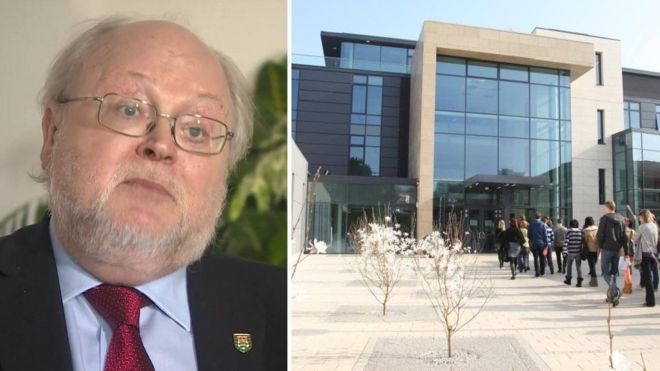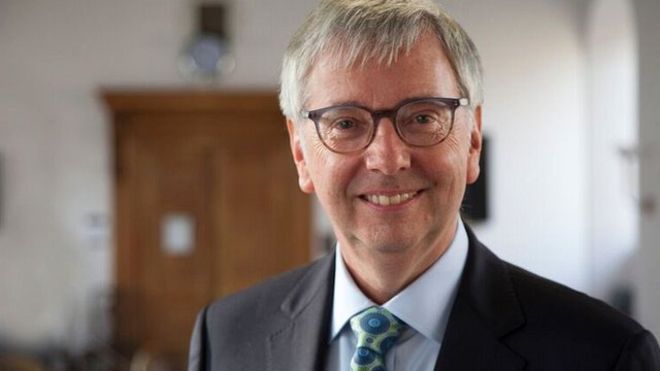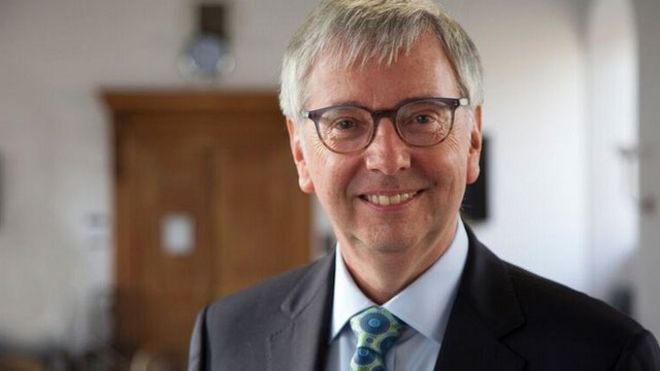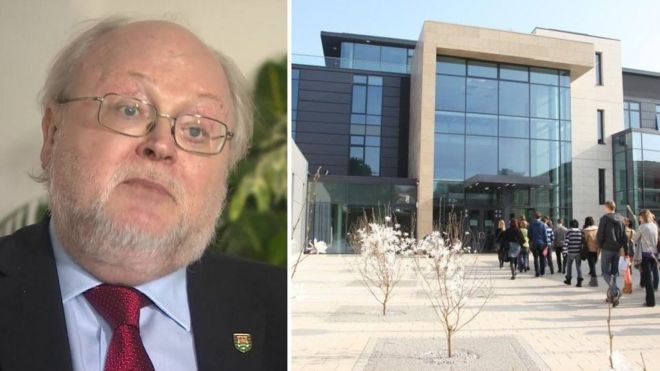
A PhD student was stopped from boarding a plane at Heathrow amid new US travel restrictions which his vice chancellor said “undermines academic freedom”.
The unnamed Iraqi student, now studying at Exeter University, had been due to present his research at a “prestigious US institution”.
He said he was detained “because of President Trump’s executive order”.
Exeter University Vice Chancellor Sir Steve Smith said he could not “condone a policy that… impedes research”.
More on the University of Exeter student, and other news
The student, who has been studying in the UK for the past five years as a postgraduate, said he had obtained a visa months ago from the US Embassy in London.
‘Really sad’
He said: “As I was about to board the plane they looked at my passport and stopped me, and someone who said they were from Homeland Security arrived and said it was because of President Trump’s executive order.
“This is really sad because we have great collaboration with academic colleagues in the United States and I had been invited to present my work to them months ago.”
The student, who asked to remain anonymous, added if the order stopped academics collaborating “to improve people’s lives, that is a sad thing”.
He returned to Exeter after failing to get the flight.
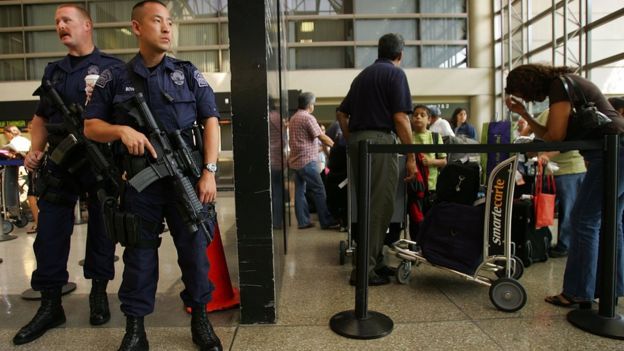 Image copyrightDAVID MCNEW/GETTY IMAGES
Image copyrightDAVID MCNEW/GETTY IMAGESThe order, introduced last week, means anyone who has nationality or dual nationality of Iran, Iraq, Libya, Somalia, Sudan, Syria and Yemen are not permitted to enter the US for 90 days, or be issued an immigrant or non-immigrant visa.
However, the UK foreign office put out a statement saying only those dual nationals travelling from one of the blacklisted seven countries might be subject to extra checks. It said those travelling from any other country to the US would not be affected and should not be subjected to any extra vetting, “regardless of your nationality or your place of birth”.
President Trump said the halt was needed to give government agencies time to develop a stricter vetting system and ensure visas were not issued to individuals posing a national security threat.
Sir Steve said the university welcomed people from around the world and would “actively supporting any staff and students who are affected by the ban”.
He said: “Without free movement of people and ideas, the whole world suffers, and this is why we believe the imposition of travel restrictions by the US government based on nationality both undermines the principle of academic freedom and jeopardises the advancement of knowledge between nations.”
The university “cannot condone a policy that restricts these freedoms, curtails intellectual partnerships or impedes research,” he added.

